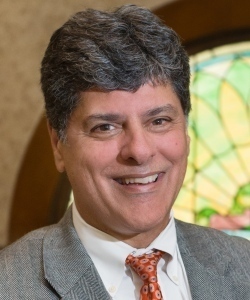In a previous blog, I wrote about whether a Will was valid if it was signed by someone with dementia. In that blog, I mentioned three generally accepted criteria that the proponent of the Will must prove for a court to determine whether the testator had the capacity to sign their will. In this blog, I’d like to explore those three criteria in more detail.
Did the testator know what property she owned when she signed her Will?
When I set an appointment to prepare an estate plan, I ask the client to complete an estate planning questionnaire. This questionnaire asks them to tell me such things as whether they have any life insurance, annuities, retirement plans, non-retirement accounts, real estate holdings, bank accounts or business interests. Typically, before the first meeting, clients have sent the completed questionnaire to me for my review. Armed with this information, I can then explore the best possible estate plan for them by carefully reviewing each asset at the initial meeting.
This exercise forces people to stop, consider what they have and record that information in writing. As I review each asset with the client, I am in a unique position to determine whether they have an understanding of the property that they own and whether they have the capacity to move beyond merely discussing their estate plan, to actually creating that plan. If the ultimate estate plan is ever challenged on the ground that the testator had dementia and did not have the capacity to understand what property she owned when she signed her will, as her estate planning attorney, I could testify in a court hearing to her understanding.
Did the testator know who were the natural objects of his or her bounty?
Another way to ask this question is did the testator understand who is in his or her immediate family? In addition to asking them to set forth their asset information, our estate planning questionnaire asks clients to tell us about their children and other descendants. Once again, the testator must go through the exercise of providing detailed information including names, dates of birth, addresses, telephone numbers and other biographical information about potential beneficiaries. In cases where the client does not have children, we ask the client to provide us with similar information relative to other family members. This information helps us determine who may contest a will. We may need to know whether a client’s parents, siblings, cousins, nieces, or nephews are living. We also record information about the beneficiaries that the testator would like to inherit their estate.
After I have gathered this information, I must be satisfied that the testator understands what she is doing and in cases where she chooses to leave one child with something less than another, I document the reasons why. In my experience, people may leave an unequal distribution to their children with perfectly valid reasons for doing so. I must determine whether the testator had the capacity to understand what he or she was doing.
Does the testator understand that a Will disposes of her property at death?
After going through the analysis set forth above, how does someone demonstrate that their Will disposes of their property when they die, especially if there is a concern about possible dementia? In my experience, the Will signing ceremony could not be more important. After creating the Will, I get a draft copy of that document to my client about a week or two before the actual Will signing ceremony. This is critical because it gives the testator time – when they don’t feel rushed or pressured – to carefully review his or her Will. If, after reviewing it, they have any questions, concerns or corrections, that is the time to discuss them and make adjustments. Once those questions are answered, the testator is ready to sign the Will.
At the Will signing ceremony, ask questions of the testator which are intended to test her capacity to understand the document she is signing. This interview of the testator always occurs before another disinterested witness. Most of the time, there is no doubt as to the capacity of the testator to sign. Nevertheless, in cases where I have a concern about dementia, I will ask several probing questions that are intended to prove to my satisfaction – as well as that of my witness – that the testator had the requisite capacity to execute her Will. First, I may ask the testator if she read the Will. I then follow that question by asking if the testator can state – in her own terms – how the Will disposes of her assets and to whom they will be distributed. I may even ask the witness to take copious notes of the ceremony so that if there is a later challenge to the will, the notes can refresh the witness’ recollection as to whether the testator had the requisite capacity to sign her will.
Ultimately, you must sign your Will well before you get to this point. Talk to an estate planning lawyer about putting a plan together when you are capable of doing so. Most people work very hard all of their lives to create an estate for themselves or to leave property to a loved one. It makes little sense – when you get towards the end of your life – to have no plan at all or worse still, to create one under conditions where it could be challenged due to lack of capacity.
If you or someone you know needs an estate plan, please don’t hesitate to call the estate planning attorneys at Cipparone & Zaccaro, PC. We’ll be happy to discuss the client’s situation, assess capacity to make a Will and recommend a course of action that best honors their intentions.

